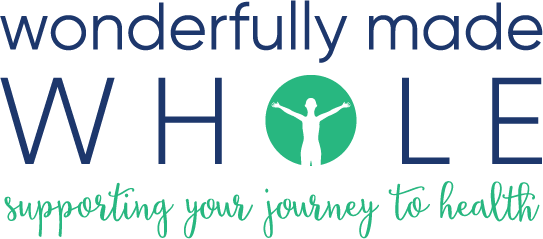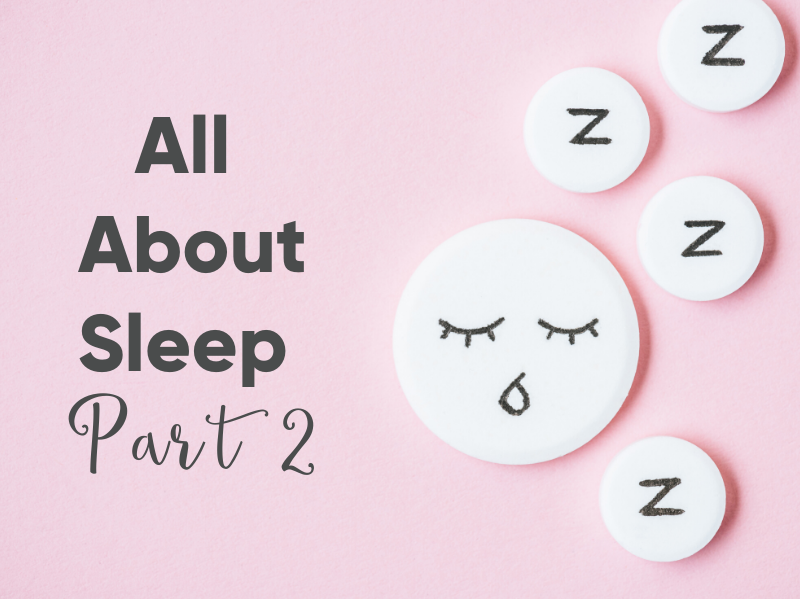Episode 10 of The Homemade Health Podcast – All About Sleep, Part 2
All About Sleep – Part 1 – is episode 7 of The Homemade Health Podcast. Due to technical issues, this episode got bumped a little so we reference part 1 as being the last episode, but it’s not.
If you haven’t listened to part 1, that’s ok! In this episode, Sydney & Lori focus on ways that you can improve your sleep. They discuss the circadian rhythm, blue light and how exercise impacts sleep. Learn how alcohol and caffeine affect sleep. Listen in as Lori & Sydney explain additional steps that you can take to optimize your sleep.

TOPIC: SLEEP PT 2 – How to Improve Your Sleep
Sum Up Episode 7 – Discussed how much sleep you actually need
- Adults 7 to 9 hours
- Teens 8 to 10 hours
- Kids (6 to 13) 9 to 12 hours
- Impact of lack of sleep on your body, both short term and long term
- Anxiety (70-90% of sleep issues from anxiety)
- Our devices
IMPROVING OUR SLEEP
- Circadian rhythm
- Energy, signalling wake & sleeptime, quality sleep
- Triggers sleep hour after sundown, wake up hour before sunrise
- Melatonin, adenosine, cortisol
- Aim for consistent sleep & wake times
- Best is if you can wake up naturally at a similar time daily
- Bright Light Exposure During Day
- Sunlight best
- Light Therapy Lamp
- Reduce Blue Light Exposure in Evening
- From devices and overhead lights
- Blue light blocking glasses
- Stop watching TV & turn off bright lights two hours before bed
- Read or do something non-electronic instead
- Exercise regularly
- But not in the evening
- Also good for anxiety & depression
- Studies have found aerobic exercise in particular to be beneficial with insomnia
- Cut caffeine
- Blocks adenosine receptors in brain
- Some recommend none after noon
- Some might need to eliminate entirely
- Hard on adrenals
- Wind up with caffeine and then wind down with wine, bad cycle
-
- Cut alcohol
- Some say they sleep better after a drink or two, but sleep quality is impacted
- Reduces REM sleep, so you don’t wake feeling rested
- Alters melatonin production
- Decreases HGH production, which plays role in circadian rhythm and repair
- BS & liver impacts which can wake us
- Cut smoking
- Optimize sleep environment
- Temperature, noise, lights
- Around 70* ideal for most, but not all
- If you can’t cut out the noise, a white noise machine may help
- Kick pets out of the bed
- Though Mayo Clinic study suggested having them nearby can help sleep
- Temperature, noise, lights
- Look at your evening meal
- Big meal too close to bed
- BS dysregulation – may need snack before bed
- Look at your meds, many disrupt sleep
- Breathing
- 4-7-8 breaths
- Breathing through nose
- Somnifix
- Evaluate pillow/mattress/sheets
- Address BS Dysregulation and Nutrient Deficiencies
- Self Care
- Relaxing shower or bath
- Epsom salt – not really salt, its magnesium sulfate
- Enjoy some relaxing tea
- Managing your stress during the day
- Orgasm
- Laugh
- A study published in the Journal of Psychosomatic Research reveals that laughing increased study subjects’ melatonin production, potentially making it easier to drift off
- Relaxing shower or bath
- Some say they sleep better after a drink or two, but sleep quality is impacted
- Cut alcohol
- Make sleep a priority
Melatonin- Cautions
- Down regulation of natural production
- Band-aid -> never getting to root of the issue
- May be helpful on rare occasions
Other nutrients/supplements
- Magnesium
- Glycine
- Valerian root
- L-theanine
- Lavender
- Chamomile
- a study published in the Journal of Sleep Research, omega-3 supplementation significantly improved sleep in a group of elementary school children
- Adrenal Support – though some energizing should not be taken in afternoon
- Cautions

